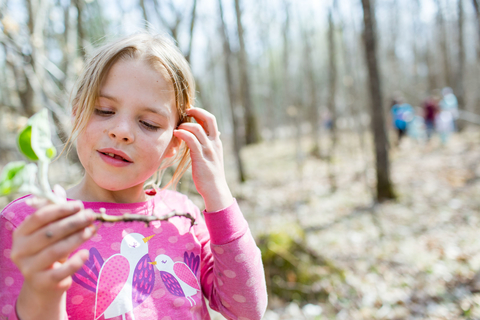Discover Minnesota's diverse wildlife habitat in prairies, forests, wetlands or your own backyard.
What can you do?
In the wildlife biology and management project, you can:
- Learn about wildlife populations, diversity and what impacts their habitats.
- Track wildlife.
- Build nesting boxes.
- Explore careers such as wildlife biologist or naturalist.
- Learn to be a good steward of the land.
These are just some of the many ways you can participate in this project.
Project information
Get started with 4-H'ers in your area
- Contact your local 4-H office for more info.
Get started on your own
- Begin your project learning with the wildlife biology and management project resource guide.
- Reflect on your project and what you've learned using 4-H record keeping.
4-H Wildlife Habitat Education Program (WHEP)
4-H WHEP is a hands-on environmental education program dedicated to teaching wildlife and fisheries habitat management to youth. It provides participants in grades 3-13 an opportunity to test their wildlife knowledge in a friendly competition in teams of 3-4 similarly aged individuals led by a local 4-H volunteer coach. The winning senior WHEP team (14-19 years old) will attend the annual National WHEP Contest, typically held the last full week of July.
Project opportunities near you
Get in touch with your local 4-H office to learn about wildlife biology and management project events and activities in your area.
Interested in getting involved as a wildlife biology and management project volunteer?
Contact your local 4-H office or learn more about volunteering in 4-H.
Project resources for volunteers
Find volunteer support materials for this project and much more on the 4-H Volunteer Resource Center site.
To volunteer with 4-H in your area, contact your local 4-H office.
Additional resources for supporting youth in wildlife biology and management
Fair information
What does it mean to show at the fair?
For 4-H'ers, local and state showcase events (like the Minnesota State Fair) are not just fun events. They provide youth opportunities to exhibit the knowledge and skills they've gained throughout the year– and to continue their learning.
Contact your local 4-H office for wildlife biology and management project showcase opportunities near you.
Exhibit ideas and judging criteria
Get exhibit ideas and find out what the judge is looking for in the evaluation sheet.
Reviewed in 2023


